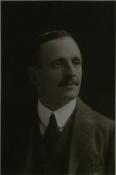
|
The King's School Canterbury |
Roll of Honour |
| Captain Charles George BILLING | |
|
Deal Battalion, Royal Marine Light Infantry Date of birth: 15th May 1882 Date of death: 13th June 1915 Killed in action aged 33 Commemorated by a Special Memorial at Redoubt Cemetery Helles, Gallipoli |

|
| He was born at Madras on the 15th of May 1882, the eldest son of the Reverend George Billing MA, a missionary in Madras from 1871 to 1888 and afterwards vicar of Sturry and Platt, and Caroline Flora (nee Gabbett) of 28 Bromley College, Bromley in Kent. He was educated at the Junior King's School from May 1892 to July 1896, at Dover College where he was in Priory House from September 1896 to 1900. He went on to the Royal Naval College Greenwich, after which he entered the Royal Military College Sandhurst in 1900. He was commissioned as a 2nd Lieutenant in the Royal Marine Light Infantry on the 1st of January 1901, was promoted to Lieutenant on the 1st of January 1902 and to Captain on January 1st 1912. He served on the China station in 1903, in the West Indies in 1906, in the Mediterranean in 1908 and on the Pacific station in 1912. He learned to fly at the Ewen School at Hendon and was awarded his Aero Certificate (number 665) on the 27th of October 1913 flying a Caudron Biplane. In 1914 he was appointed to the light cruiser HMS Doris and, following the outbreak of war, he was posted to HMS Cormorant on Ascension Island on the 8th of August 1914, remaining there until the 5th of March 1915 when he returned to England. He sailed from Plymouth on the 10th of May 1915 bound for the Dardanelles with a draft of men and joined the Deal Battalion, Royal Naval Division at Cape Helles, Gallipoli on the 30th of May. Shortly after joining the battalion in the trenches, Charles Billing was shot in the head and killed by a sniper. On June the 16th 1915, Sergeant William Jackson Shaw, of No.1 Platoon, A Company, Deal Battalion, noted in his diary:- "I forgot to say that we lost Captain Billing the day before yesterday in the trenches, shot through the head. He had only just joined us from England so he did not last long, did he, but really it was his own fault. He would not be told or would not do as told to keep his head down. He wanted to see all at once instead of a little bit at a time." He is commemorated by a Special Memorial at Redoubt Cemetery at Helles, meaning that he is believed to be buried in the cemetery, but his grave has since been lost. He is commemorated on the war memorial at Dover College and on the memorial at Bromley. |
|
| Junior King's School |
Back